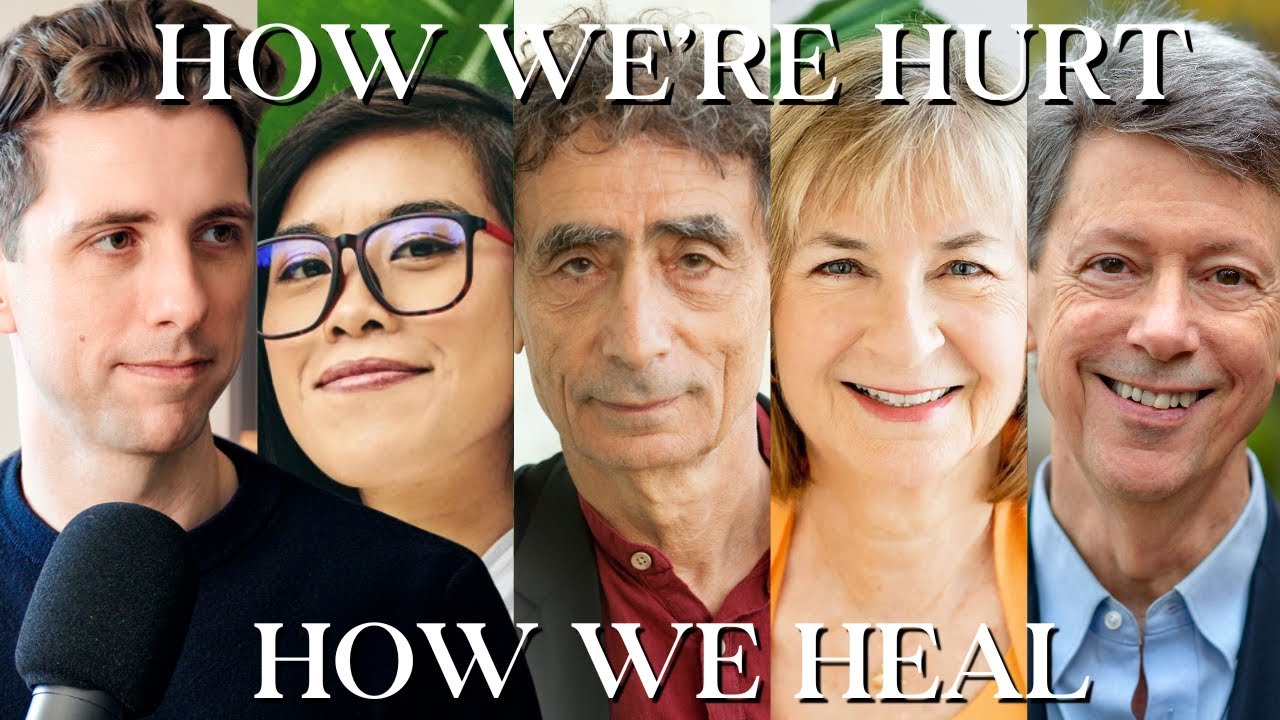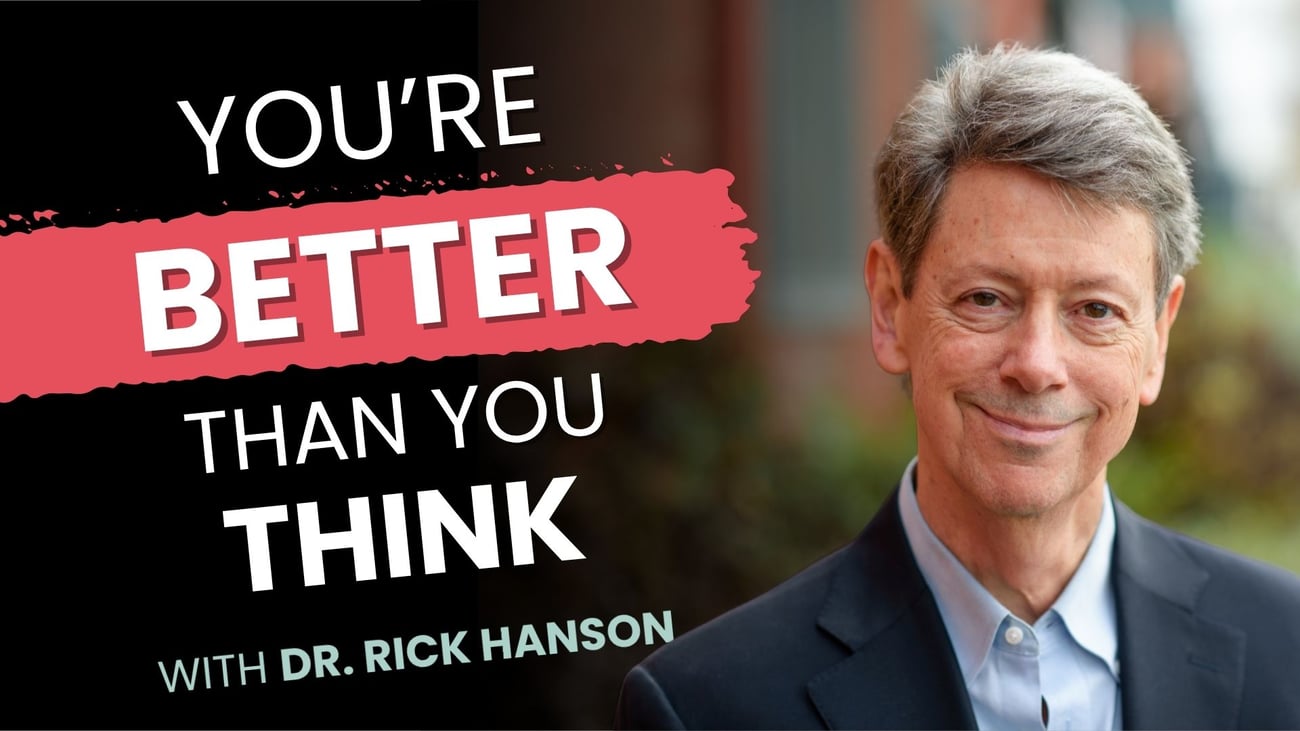 |
Just One Thing |
|
|
|
Simple Practices for Resilience and Happiness from |
|
DR. RICK HANSON |
 |
|
|
|
|
Just a friendly reminder that today is the last day to sign up for my Hardwiring Happiness Masterclass at the early-bird price. I'm really excited about this class as it's a super accessible way to give you all the tools you need to beat your brain's negativity bias and have real, lasting change. The methods I teach in it can be applied to any challenge you're facing and will help you feel steady, calm, and even joyful, no matter what's happening around you. I hope you'll join me! |
|
|
|
 |
Could it crack? |
THE PRACTICE: |
Embrace Fragility. |
|
|
— Why? — |
|
The truth of anything is like a mosaic with many tiles, many parts.
One part of the truth of things is that they are robust and enduring, whether it's El Capitan in Yosemite or the love of a child for her mother and father.
Another part of the truth is that things bruise, tear, erode, disperse, or end - fundamentally, they're fragile. Speaking of El Capitan, I knew of someone climbing it who had just placed anchors above a long horizontal crack when the sheet of granite he was standing on broke off to fall like a thousand-ton pancake to the valley floor below (he lived, clutching his anchors). Love and other feelings often change in a family. Bodies get ill, age, and die. Milk spills, glasses break, people mistreat you, good feelings fade. One's sense of calm or worth is easily disturbed. Wars start and then end badly. Planets heat up and hurricanes flood cities. Earthquakes cause tidal waves and damage nuclear reactors.
Life is like a house of cards, and a single gust - a layoff at work, an injury, a misjudgment, a bit of bad luck - can knock it over. Taking a longer view, several billion years from now, our Sun will swell into a red giant star that consumes Mercury, Venus, and Earth: the Grand Canyon, Pacific Ocean, and all the works of humankind will come to an end, utterly fragile.
Sometimes we overestimate the fragility of things, as when we don't recognize the deep wells of inner strength in ourselves and others. But I think we are more likely to deny or downplay the true extent of fragility: it's scary to realize how delicate and vulnerable your body is, or the threads that bind you to others - so easily frayed by a single word - or the balance of climate and ecology on our planet. It's scary and humbling - neither of which people like - to face the underlying frailty of the body, how easy it is for a relationship to go awry, the ways that so many of us are overextended and running on fumes, the rickety underpinnings of the global financial system, the deep fissures within many nations, or the unpredictability and intensity of Mother Nature.
But if we don't recognize fragility, we'll miss chances to protect and nurture so many things that matter, and we'll be needlessly surprised and upset when things do inevitably fall apart. We need to embrace fragility - to see it clearly and take it into our arms - to be grounded in truth, peaceful amidst life's changes and endings, and resourceful in our stewardship of the things we care about. |
— How? — |
|
Simply be mindful of fragility - both actual and potential. Notice how many things do break - defined broadly - and notice how many more there are that could break and eventually will: "things" such as physical objects (e.g., cup, blouse, body, species, ecosystem, earth's crust), relationships, projects, agreements, states of mind, lives, and societies.
Notice any discomfort with recognizing fragility. Be aware of the other tiles in the mosaic - such as stability, resilience, and repair - that can help you push through this discomfort. Appreciate that it is the fragility of things that often makes them most precious.
See the fragility of others and their pains and losses related to all the things that have "broken" or could break for them. See the delicacy of their feelings, the sensitivities, and vulnerabilities in their sense of worth or well-being. Let this knowing about others - both people you're close to and those you're not, even people who are difficult for you - open your heart to them. Knowing the fragility of others will naturally lead you away from being harsh or unkind to them.
See the brevity and flimsiness of your own life, and the fragility of your hopes and dreams: why wait another day to do all that you reasonably can to fulfill them?
Consider where you are unnecessarily fragile - perhaps too prickly about criticism, too vulnerable to a slumping mood, too prone to illness, too indebted, too isolated at work (or in life altogether), or too under-resourced in any significant area - and make a realistic plan for shoring these up. For example, I've been getting run-down and have realized I really need to make sleep a higher priority.
Do what's in your heart about what's fragile in our world - whether it's an ailing elderly person next door or disaster victims across an ocean.
Ultimately, try to come to peace with the inevitable: all things fall apart, one way or another. Everything cracks. And yet there is something so beautiful about this part of the truth, as Leonard Cohen says much more eloquently than I can:
Ring the bells that still can ring
Forget your perfect offering
There is a crack in everything
That's how the light gets in
That's how the light gets in |
| Read this Online |
|
|
Know someone who could embrace fragility? |
|
Share this Just One Thing practice with them! |
|
Share on Facebook | Tweet on X | Forward this Email |
|
|
|
|
|
|
NEW ON THE BEING WELL PODCAST |
Trauma Masterclass: Understanding and Repairing Our Hidden Wounds |
 |
|
Today we’re revisiting some of our favorite episodes to explore one of the most salient topics in psychology today: trauma. We begin by tracing its developmental roots with Dr. Lindsay Gibson and Dr. Bessel van Der Kolk, before looking at how it can be passed down through family systems with Dr. Mariel Buqué, associate somatic therapist Elizabeth Ferreira, and author Stephanie Foo. Dr. Jacob Ham and Dr. Peter Levine then share new perspectives on healing, emphasizing the importance of getting out of the head and into the body. Finally, Dr. Gabor Maté discusses the cultural context of trauma, arguing that it’s a symptom of a toxic culture. |
| Check out the Episode |
|
|
|
|
|
|
NEW FROM THE WEDNESDAY MEDITATIONS + TALKS |
Appreciating Your Own Generosity and Good Intentions |
 |
|
Last week I offered a live meditation on being Calm and Openhearted, followed by a talk about Appreciating Your Own Generosity and Good Intentions, and I hope you'll check it out.
If you haven't yet, sign up to join me every week for this free, live offering.
|
| Check It Out |
|
|
|
|
|
|
MORE GOOD STUFF |
|
|
|
SCIENCE NEWS (VIEW ARCHIVE HERE)
A remarkable new study shows chimpanzees can rethink their beliefs and change their minds when they see better evidence. Clearly, they're not monkeying around (likely because they're apes!).
|
|
|
|
FOR PARENTS
Some couples are equal partners in the work of making a family. But that’s the exception, since many studies have found that the average mother is on-task, working away at one thing or another, about twenty hours a week MORE than her partner is, whether or not she is drawing a paycheck. If you are one of the many parents who would like more help from your partner, we suggest you do two things.
|
|
|
|
|
|
|
HAVE YOU READ IT YET? |
Hardwiring Happiness |
 |
|
Beat the brain’s negativity bias with the power of positive neuroplasticity for lasting contentment, calm, and confidence. This New York Times bestseller is available in Hardcover, Paperback eBook, and Audiobook, wherever books are sold.
|
| Get Your Copy |
|
|
|
|
|
|
WORDS OF WISDOM |
"Do what's in your heart about what's fragile in our world - whether it's an ailing elderly person next door or disaster victims across an ocean." |
|
— RICK HANSON, PHD |
|
|
|
|
JUST ONE THING (JOT) is the free newsletter that suggests a simple practice each week for more joy, more fulfilling relationships, and more peace of mind. A small thing repeated routinely adds up over time to produce big results.
Just one thing that could change your life.
(© Rick Hanson, 2024) |
|
|
|
|
|
|
|
|